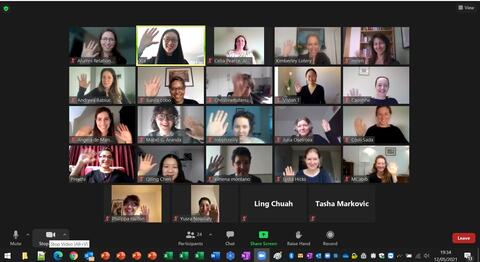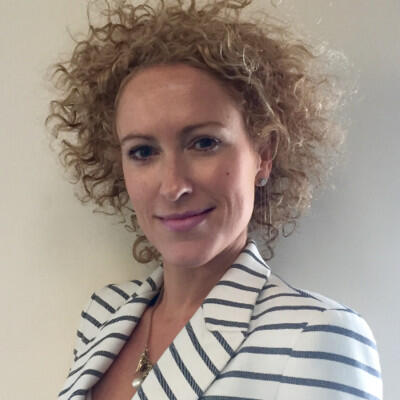
Now more than ever, leaders are required to have a high level of emotional intelligence to deal with the impact of COVID-19 on their teams and colleagues. By increasing our understanding of the inherent roles we play in our life and work, we can improve our personal and professional relationships, and in turn become more effective leaders.
This was the theme of a recent interactive workshop led by Kimberley Lotery, Leadership, Executive and Systemic Coach at One Mind Coaching, for the Imperial Women’s Network. The audience of Imperial alumni explored how to become more efficient and empathetic leaders, ready for the business world of tomorrow.
“75% of careers are derailed for reasons related to emotional competencies, including inability to handle interpersonal problems; unsatisfactory team leadership during times of difficulty or conflict; or inability to adapt to change or elicit trust.”
The Center for Creative Leadership
The Drama Triangle
The session began by focusing on Stephen Karpman’s ‘Drama Triangle'. Kimberley talked through the interchanging roles of persecutor, rescuer and victim – a revolving cycle of relationship roles which we all play at some point. The roles are not static, although we have a predisposition to one.
Each position confirms our internal beliefs about ourselves and the others we are interacting with and influences how we react. We move around the drama triangle in a cycle of discontent repeating patterns that reinforce our internal scripts and narratives. We often carry these traits with us from our personal relationship systems and family systems, through to the workplace unknowingly, with sub-optimum results. In order to break this cycle, personal enquiry and self-reflection helps to identify which role you naturally play.
Once you have established this, you can adjust how you respond to situations moving forward, and actively change this pattern to reflect the ‘winners’ triangle instead. This shifts the focus to ‘coach’, ‘vulnerable’ and ‘powerful’, a scenario where each supports the other to succeed. Re-evaluating the roles like this will help create a more positive environment for people to learn, work and thrive, communicating better resulting in healthier, and more equitable and empowered relationships.
The session made me reflect about my own style and the role I play in conflict situations and how this is transferred to our style and development as female leaders. The presentation was very illustrative and useful, and the delivery was flawless, allowing for a safe and confidential platform for sharing and engagement.
Quote from participant

Dysfunctional teams
Moving from the personal to the professional, the workshop also explored the qualities of dysfunctional teams and how these can be addressed. Stress points for a team can often centre around:
- Trust
- Conflict
- Commitment
- Accountability
- Results
Focusing on the quadrants of leadership conversation (Theory U, Otto Scharmer) Kimberley explained how to move from a non-reflective dialogue as a team to reflective dialogue, moving through the difficult states of ‘polite corporate speak’ to ‘breakdown of control’, through the inquiry stage, to reach a point of authentic communication and trust.
In order to successfully move through these stages, an essential element is listening and reflective enquiry which supports a move from an ego ‘I based’ awareness to a more ‘we based’ approach.
“By listening more effectively, we can move from a silo to a systemic view, ego to eco awareness that serves and support thee wider team/system. Leadership doesn’t exist in isolation, but in the relationships that we create,” commented Kimberley.
Listening skills
Strong leaders have strong listening skills. Analysing the type of listener you are will help your work and personal relations, and make you a better leader as well as team player. A person who is an ‘internal listener’ will hear, but only focus on how it relates to them and their own responses. A ‘focused listener’ is more attentive and perceptive, however to truly connect and be an empathetic leader you need to listen on a deeper and broader level. And this involves an emotional connection – taking note of body language, voice intonations and energy levels as well as an understanding of the others mental model. This is when you will move into a more focused coaching, empathic, resonant and leadership stance.
To facilitate this reflection, it is necessary to think about things from others perspective and explore how things can be interpreted differently - with different biases, backgrounds, internal narratives and culture codes all shaping our mental models.
Participants took part in both practical and experimental exercises in groups, personal reflection work and group share, and a pre-session questionnaire to bring out the collective wisdom of the group. Using this process of internal reflection and self-analysis we can all become more empathetic and connected colleagues and leaders – exactly the traits needed to move forward in the business world of today and be future fit.
The practical sessions were quite revealing and I left with a new perspective and actions to go forward with.
Quote from participant

Speaker biography
Kimberley Lotery is a trained Coach and member of the International Coach Federation (ICF), and a Mentor on Coach Training Course accredited by the ICF.
She coaches 1:1 and senior leadership teams across a wide range of clients and sectors including finance, technology, retail, professional services, hotels, travel and lifestyle as well as the public and not for profit sectors.
Imperial Women’s Network
The Imperial Women’s Network is focused on advancing women’s leadership in business. The supportive community aims to provide a space for peer-to-peer professional and personal networking and support for female alumni, and male ‘advocates of diversity’ who have studied at Imperial College London.
